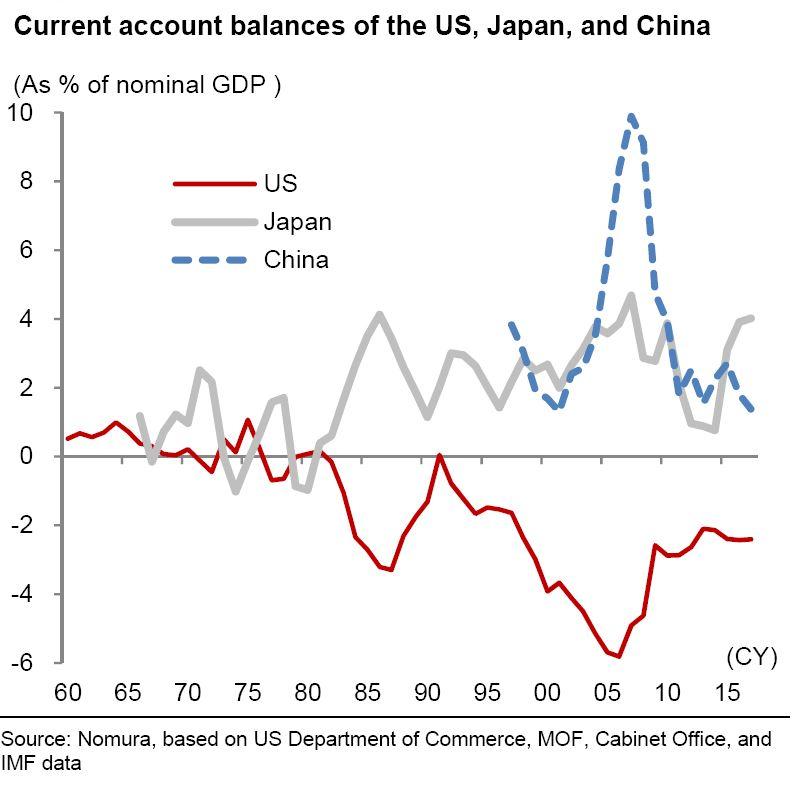Economics | 2 min read April 2018

Japan in focus | 2 min read | August 2018

Japan in focus | 2 min read | August 2018
Lessons from Japan's trade friction with the US
With the recent rise in protectionist policies in the US, and the resulting global reaction, trade war rhetoric seems at an all-time high. However, this isn’t the first time that two countries, more specifically the US and Japan, have clashed through trade.
From the 1950s to the 1990s Japan often found itself in disagreement with the US over trade. Although the trade war in automobiles in the 1980s was to do with the US’s current account deficit, there was significant trade friction from the 1950s to the 1970s related to textiles and steel, which took place before the US had a pronounced current account deficit. When Japan and the US found themselves in conflict over trade in semiconductors in the 1980s and 1990s, the trade deficit was not what it was with automobiles, yet the US took a conspicuously hardline stance. It seems that the US’s protectionism in this case had to do with a perceived threat to its military hegemony.

Therefore, the current trade friction caused by the Trump administration may be a result of a combination of not only current account deficits, but also domestic political considerations, and the will to maintain military supremacy. We believe the Trump administration to be approaching trade negotiations with a complex set of motives arising from these three concerns. It would be unwise to weigh only the economic rationale for various policies when trying to predict what approach the Trump administration might take.
On 23 May this year, the US Commerce Department began an investigation into whether auto imports threatened the US auto industry, and one proposal that has apparently been floated is that 25% supplementary tariffs should be imposed on imported passenger vehicles. If that were to happen, the impact on Japanese auto exports would be considerable. If tariffs were to be increased, it would not only make US imports more expensive and squeeze US family budgets but also invite retaliatory tariffs from the US's trading partners that would hit US industry.
The question is therefore why the Trump administration is nevertheless prepared to take a tough line. From the 1950s to the 1990s Japan often found itself at odds with the US over trade. In this report we look back on this period to see whether it has any pointers to the kind of action the Trump administration may take.
Read the full report here.

Chief Japan Economist
This content has been prepared by Nomura solely for information purposes, and is not an offer to buy or sell or provide (as the case may be) or a solicitation of an offer to buy or sell or enter into any agreement with respect to any security, product, service (including but not limited to investment advisory services) or investment. The opinions expressed in the content do not constitute investment advice and independent advice should be sought where appropriate.The content contains general information only and does not take into account the individual objectives, financial situation or needs of a person. All information, opinions and estimates expressed in the content are current as of the date of publication, are subject to change without notice, and may become outdated over time. To the extent that any materials or investment services on or referred to in the content are construed to be regulated activities under the local laws of any jurisdiction and are made available to persons resident in such jurisdiction, they shall only be made available through appropriately licenced Nomura entities in that jurisdiction or otherwise through Nomura entities that are exempt from applicable licensing and regulatory requirements in that jurisdiction. For more information please go to https://www.nomuraholdings.com/policy/terms.html.
Economics | 2 min read April 2018
Economics | 4 min read August 2018